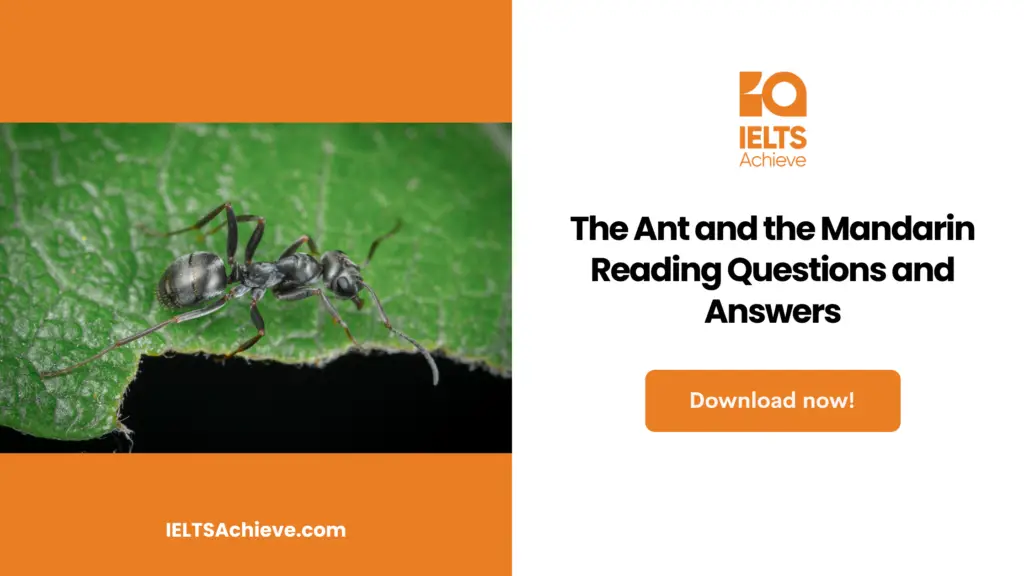The Blog post contains the following IELTS Reading Questions:
- IELTS Reading Yes/No/Not given
- IELTS Reading Locating information
- IELTS Reading summary completion
Stay informed and prepared for success – Explore our comprehensive Reading Test Info page to get valuable insights, exam format details, and expert tips for mastering the IELTS Reading section.
IELTS Reading Passage: Green virtues of green sand

Green virtues of green sand
- For the past century, people in the UK town of Leighton Buzzard have used high-quality white sand mined from the ground as a water filter to get rid of harmful bacteria and other contaminants in the water supplied by the city’s taps. The recycling industry and the filtration of drinking water in Britain may both benefit from a new factory that transforms used wine bottles into green sand. An organisation in Scotland is constructing the plant with the help of $1.6 million from the European Union and the Department of Environment, Food, and Rural Affairs (Defra). This endeavour will allow the company to recycle plastic beverage bottles back into the sand they were originally created from. 50 swimming pools in Scotland are currently using the green sand, which has been tested extensively by water companies and shown to be effective in keeping the pools’ water clean.
- The concept aims to address a problem in the recycling industry while also conserving sand, which is becoming a more scarce natural resource. Each year, the United Kingdom consumes 5.5 million tonnes of glass but recycles only 750,000 tonnes. Half of all green bottle glass in Great Britain comes from wine and beer bottles that were imported, which presents a serious environmental and safety risk. Green glass has a low value of only $25 per tonne because there is so much of it and it is not as commonly used in domestic production as other types of glass. The value of clear glass, which is melted down and used for export-oriented applications like whisky bottles, is double that.
- One of the company’s top brass, Howard Drvden is also a scientist. Active Filtration Media (AFM) is the result of Drvden Aqua of Bonnyrigg, near Edinburgh, working on the product for six years. He freely admits that he has used a “fancy name” for what is essentially recycled glass to disguise what most people would consider a subpar product. In order to ensure that water filtered through the AFM is safe to drink, he claims he needs bottles that have previously held potable liquids. “The fact is that tests show that AFM does the job better than real sand, that it is easier to clean and reuse, and that it has all kinds of “It possesses properties that make it ideal for other applications,” he explained. This is because crushed beverage glass contains fewer impurities than natural sand.
- The factory has the capacity to make 100 tonnes of AFM each day, although Mr. Dryden sees this more as a massive trial project than actual manufacturing. There is a large supply of glass near the factory, but it will be used up quickly by the estimated 175,000 to 217,00 tonnes per year needed to provide the UK market for this glass to filter drinking water, sewage, industrial water, swimming pools, and fish farming. Therefore, in order to save transportation expenses, he plans to construct five or six factories in urban areas with abundant bottle resources.
- The current factory is nearing completion and is scheduled to begin full production on January 14 of next year. Water companies will begin using it widely once it begins supplying a “regular” product, at which point the government’s drinking water inspectorate will be asked to conduct tests. A Defra spokesman expressed optimism that AFM would be granted regulatory approval within the next six months. The only potential issue they could think of was contamination, which could occur if some of the glass came from places other than beverage containers.
- Caroline Fitzpatrick of University College London’s civil and environmental engineering department is among those who have already tested the glass. “We looked at several batches and it appears to work,” she said. You could say that Mr. Dryden is recycling glass bottles into sand. It’s a simple concept, and we can’t see any reason why it wouldn’t work. Dr. Fitzpatrick elaborated, “There was no reason to believe there would be a problem, since glass from wine bottles and other beverages has no impurities and clearly did not leach any substances into the bottles’ contents.”
- Mr. Dryden has recruited agents all over the globe to promote and sell AFM on his behalf. It is already being used to filter water on banana plantations in Central America, where the fruit must be washed before being shipped to European markets. As a result of stricter regulations on sewage works throughout the European Union, it is also used in sewage works to filter water before it is returned to rivers. Therefore, there are a wide variety of uses involving water purification. However, at $670 per tonne now, AFM is roughly four times as expensive as high-quality sand. However, that is because we lack the capacity for mass production. When we get rolling, the price will be much lower, and it will be on par with sand. I quote Mr. ‘I believe it performs better and lasts longer than sand, so it will be a better value,’ says Dryden.’
- The government agency responsible for finding markets for recycled products would receive a significant boost if AFM became a popular product. Crushed glass is already used as a component of road surfaces and in the production of tiling and building materials. Similarly. As a result, AFM may find widespread application and give green glass a monetary value.
Unlock your full potential in the IELTS Reading section – Visit our IELTS Reading Practice Question Answer page now!
Recommended Questions:
Renewable Energy IELTS Reading Question with Answer
Green virtues of green sand Reading Questions
Do the statements below agree with the information in Reading Passage 1?
In Boxes 1-3, write:
Questions 1-3
YES if the statement agrees with the information in the passage
NO if the statement contradicts the information in the passage
NOT GIVEN if there is no information about the statement in the passage
1. Howard Drvden was a scientist and an entrepreneur.
2. According to Mr Dryden 100 tones of AFM is a large-scale pilot project.
3. The development of this firm will be at peak in the near future.
Want to excel in identifying the writer’s views and claims? Click here to explore our in-depth guide on how to accurately determine Yes, No, or Not Given in the IELTS Reading section.
Questions 4-9
Reading Passage 1 has 8 paragraphs labelled A-H Which paragraph contains the following information? Write the correct letter A-H in boxes 4-9 on your answer sheet.NB You may use any letter more than once.
4. An example of AFM use in the export market
5. The identification of a potential danger in the raw material for AFM
6. The description of plants to expand production of AFM
7. A list of potential applicants of AFM in the domestic market
8. A comparison of the value of green and other types of glass
9. An explanation of the chosen brand name for crushed green
Questions 10-13
Complete the summary below.
Choose NO MORE THAN TWO WORDS from the passage for each answer.
Write your answers in boxes 10- 13 on your answer sheet.
Green sand
Crushed green glass (AFM) has the potential to save a dwindling 10.__________ Locate and to provide a significant solution for the 11.___________ Locate in the UK. Glass from bottles that have been used for at least 12 years, as stated by Howard Dryden, is the only type suitable for 12._____________ use in the manufacturing process. More than just a water filter, AFM outperforms the more popular 13.___________ Locate in a number of ways.
Boost your performance in Summary, Notes, Table, and Flowchart Completion tasks. Click here to explore our detailed guide and learn how to effectively complete summaries, notes, tables, and flowcharts in the IELTS Reading section.
Green virtues of green sand reading answers
1. False
2. True
3. Not given
4. G
5. E
6. D
7. D
8. B
9. C
10. Natural resource
11. Recycling industry
12. Beverage
13. (real) Sand

We hope you found this post useful in helping you to study for the IELTS Test. If you have any questions please let us know in the comments below or on the Facebook page.
The best way to keep up to date with posts like this is to like us on Facebook, then follow us on Instagram and Pinterest. If you need help preparing for the IELTS Test, join the IELTS Achieve Academy and see how we can assist you to achieve your desired band score. We offer an essay correction service, mock exams and online courses.


